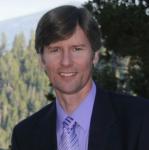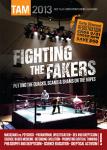Although most people can provide you with scarcely more detail about the human brain than its existence and approximate location, one  Left-Brained / Right-Brainedof the most popular brain-related facts they often report with great certainty is that they are either Left- or Right-Brained. More specifically, "Left-Brained" people describe themselves analytical and logical, with a penchant for mathematics, while the "Right-Brained" report being creative and emotive, with more artistic and intuitive personalities. These self-reports are fraught with problems…not the least of which is the fact that the entire notion of “Left-Brained” or “Right-Brained” people is complete bunk.
Left-Brained / Right-Brainedof the most popular brain-related facts they often report with great certainty is that they are either Left- or Right-Brained. More specifically, "Left-Brained" people describe themselves analytical and logical, with a penchant for mathematics, while the "Right-Brained" report being creative and emotive, with more artistic and intuitive personalities. These self-reports are fraught with problems…not the least of which is the fact that the entire notion of “Left-Brained” or “Right-Brained” people is complete bunk.
A quick Internet search for “Left-Brain/Right-Brain” tests results in literally thousands of options. A popular gimmick for team-building exercises and introductory psychology classes since at least the 1960s, these introspective measures almost always result in a personality type that the participant agrees with. That
Sheldon Helms talk in San Francisco
 Sheldon Helms, a BAS Board Member, was featured at a gathering of the Atheist Alliance of San Francisco. The presentation title:
Sheldon Helms, a BAS Board Member, was featured at a gathering of the Atheist Alliance of San Francisco. The presentation title:
Gay Conversion Therapy: You Make Me Sick.
As our country deals the issues of Marriage Equality, gays in the military, and other forms of inclusion of gays and lesbians into mainstream society, and as Russia and others institute draconian laws limiting the rights of their gay and lesbian citizens, fringe religious and therapeutic organizations have operated mostly in the shadows, attempting to "convert" their homosexual clients to heterosexuality through a mixture of prayer and pseudoscience.
Helms describes the history of attempts to define homosexuality as an illness and to make gays go straight. He details such aspects as: the goals and viewpoints of those involved in Gay Conversion Therapy; their pseudoscientific and sometimes dangerous practices; and a description of the results of over 100 years of attempts to alter sexual orientation.
Some forms of Gay Conversion Therapy have been outlawed in California and New Jersey, and one of the primary institutions that
The Roots of Bigotry…
Fifty years ago today, Dr. Martin Luther King, Jr., one of the most important figures in the struggle for Civil Rights in the Martin Luther King, Jr U.S., took part in the March on Washington in 1963, where King gave his famous “I Have a Dream” speech with which he would become so closely associated, and widely considered to be one of the best and most important speeches of the 20th century.
Martin Luther King, Jr U.S., took part in the March on Washington in 1963, where King gave his famous “I Have a Dream” speech with which he would become so closely associated, and widely considered to be one of the best and most important speeches of the 20th century.
To honor this man and his legacy, I thought it might be useful to discuss racism, or more broadly, the phenomenon that powers it, bigotry.
COMMON SENSE vs. THE EVIDENCE:
To many people, it seems quite obvious that “intolerance toward those who are different, or who hold different views” is learned. After all, schoolchildren of different races can be As some of you know, know, I attended the 11th annual Amazing Meeting (TAM) put on by the James Randi Educational Foundation. And my friend Celeste joined me there -- I gotta give her props for taking the This year's theme was "Fighting the Fakers" and emphasis was on psychics, woo alternative med practices, and other ways human beings have found to trick dollars out of pockets without providing any real service. James "The Amazing" Randi, who calls himself an investigator rather than a "debunker," has been a skeptical hero of mine for years and has inspired, trained, and influenced just about every professional skeptic and legitimate paranormal investigator working today (and no, the ghost h
In the past several days, I have received numerous emails and Facebook messages from people asking if I have heard the latest In short, current Exodus International president, Alan Chambers, posted an article on their web site in which he expressed a desire to apologize for any hurt he and his organization may have caused gay men and women, and announced that Exodus would no longer engage in SOCE. Oddly worded, and strangely lacking in what I In case you missed it, a nice article in Mother Jones debunking The impetus for Mischel’s study was one he published in 1958, involving children in Trinidad. On the island, stereotypes existed about different ethnic groups' recklessness and other behavioral tendencies. Mischel performed a small study involving about 50 children from Black and East Indian families, giving them a small treat, but prom
When skeptics read a headline like “Vinegar Saves Thousands from Cancer Death,” their defenses are doubtless on red alert. After This time, the story was true. Cervical cancer is a killer. According to the National Cancer Institute, in the U.S. about 12,000 new cases are diagnosed each year. About 1/3 of those die. As with all cancers, the most effective treatment requires early detection through regular screening, the most common of which is the Pap test, a procedure in which cells are scraped from the cervix and examined under a microscope for abnormalities. It is used to detect cancer and changes that may lead to cancer. Unfortunately screening costs money, and in the po
Earlier this month, on May 6th, 2013, three young women were rescued from captivity after 9 to 11 years as kidnap victims. What makes this story particularly interesting and frustrating for those of us in the Skeptical Community?... During an appearance on the Montel Williams Show, self-described psychic Sylvia Browne told Berry's mother, Louwana, that her daughter was dead. In that "reading," Browne said that she saw the girl in wat
Thousands were shocked in recent days to read of a 16 year old girl, Keira Wilmot, who was reportedly arrested for a failed science experiment which caused a small explosion and ended with the young girl being But could there be more to this story than meets the eye? Brief explanations in initial reports described Ms. Wilmot's mishap as part of a "science experiment gone wrong," but details were lacking. Many simply hinted at incorrect mixtures of chemicals, or bad timing. Later articles mentio

 TAM 2013 - Fighting the Fakerslead, actually -- she signed up immediately upon discovering such an event took place, while I hemmed and hawed and tried to justify the expense. So glad I succumbed to reason and finally bought my ticket!
TAM 2013 - Fighting the Fakerslead, actually -- she signed up immediately upon discovering such an event took place, while I hemmed and hawed and tried to justify the expense. So glad I succumbed to reason and finally bought my ticket!
Ex-gay Ministry Exodus Int’l Shuts Down…or Do They?
 Alan Chambers developments in the ongoing saga over the work of Exodus International, the world’s largest “ex-gay” organization. This is, in large part, due to the talk I gave last September on Sexual Orientation Change Efforts (SOCE) in which I highlighted the dangers posed by this pseudoscience, and told the history of Exodus’ failed attempts to change people from gay to straight.
Alan Chambers developments in the ongoing saga over the work of Exodus International, the world’s largest “ex-gay” organization. This is, in large part, due to the talk I gave last September on Sexual Orientation Change Efforts (SOCE) in which I highlighted the dangers posed by this pseudoscience, and told the history of Exodus’ failed attempts to change people from gay to straight.
So-called Superfoods not so Super after all
 Red Quinoathe idea that exotic edibles like quinoa, acai berries and Chia seeds are "superfoods" of extraordinarily high nutritional value. They aren't worthless, but certainly not worth the premium prices charged for them, compared to other foods that are readily available -- and that don't have the social costs generated by taking staple foods away from villagers who can no longer afford their traditional foods. CLICK HERE to read the full article.
Red Quinoathe idea that exotic edibles like quinoa, acai berries and Chia seeds are "superfoods" of extraordinarily high nutritional value. They aren't worthless, but certainly not worth the premium prices charged for them, compared to other foods that are readily available -- and that don't have the social costs generated by taking staple foods away from villagers who can no longer afford their traditional foods. CLICK HERE to read the full article.
Can a Marshmallow Predict Your Future?
 I See...A MarshmallowSome 40 years ago, in the early 1970s, Stanford University psychology professor Walter Mischel published a groundbreaking study testing children’s self-control and delayed gratification. In the study, children were presented with a treat (sometimes a marshmallow, but pretzels and chocolate were also used) and told that they could eat the treat now, or wait until the adult returned, at which point they would be given two treats. The original purpose of the study was to determine the age at which children develop the ability to delay gratification, but follow-up studies revealed something much more meaningful and shocking.
I See...A MarshmallowSome 40 years ago, in the early 1970s, Stanford University psychology professor Walter Mischel published a groundbreaking study testing children’s self-control and delayed gratification. In the study, children were presented with a treat (sometimes a marshmallow, but pretzels and chocolate were also used) and told that they could eat the treat now, or wait until the adult returned, at which point they would be given two treats. The original purpose of the study was to determine the age at which children develop the ability to delay gratification, but follow-up studies revealed something much more meaningful and shocking.
Can Vinegar Save Thousands from Cervical Cancer?
 Vinegar vs Papall, a new quack medicine or procedure for cancer treatment seems to appear in the media every other week. But when I clicked on a link today reporting this very connection between household vinegar and cervical cancer, what I found amazed me.
Vinegar vs Papall, a new quack medicine or procedure for cancer treatment seems to appear in the media every other week. But when I clicked on a link today reporting this very connection between household vinegar and cervical cancer, what I found amazed me.
Sylvia Browne Wrong Again…
 Louwana Berry / Sylvia BrowneAmanda Berry, Georgina "Gina" DeJesus, and Michelle Knight were living in a house owned by Ariel Castro, one of three men charged with abducting the girls and holding them as sex slaves. Also released was a 6-year old girl, Berry's daughter, whom DNA results have shown to be Castro's biological child.
Louwana Berry / Sylvia BrowneAmanda Berry, Georgina "Gina" DeJesus, and Michelle Knight were living in a house owned by Ariel Castro, one of three men charged with abducting the girls and holding them as sex slaves. Also released was a 6-year old girl, Berry's daughter, whom DNA results have shown to be Castro's biological child.
 Kiera Wilmotarrested and charged with “possessing or discharging weapons or firearms at a school sponsored event or on school property.” A conviction could have meant a five-year prison term, triggering Facebook, Twitter, and dozens of blogs to virtually explode with comments and requests to write to school and law enforcement officials to complain. An online crowdfund even netted an $8,000 legal defense fund, and a petition on Change.org that attracted over 195,000 signators.
Kiera Wilmotarrested and charged with “possessing or discharging weapons or firearms at a school sponsored event or on school property.” A conviction could have meant a five-year prison term, triggering Facebook, Twitter, and dozens of blogs to virtually explode with comments and requests to write to school and law enforcement officials to complain. An online crowdfund even netted an $8,000 legal defense fund, and a petition on Change.org that attracted over 195,000 signators.
